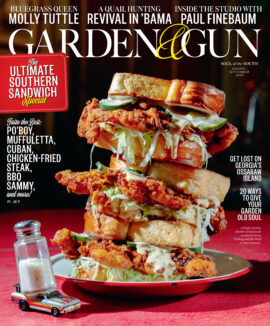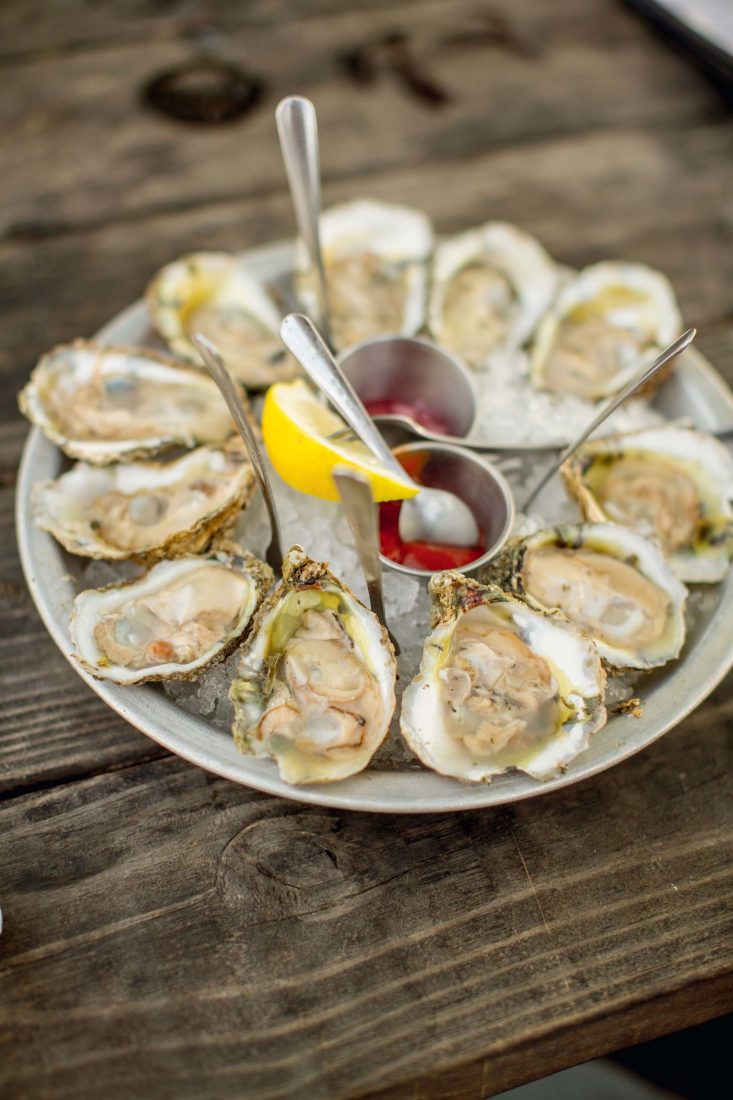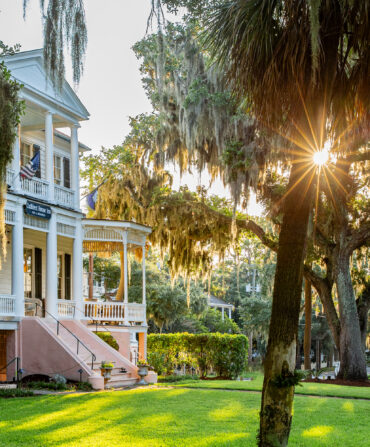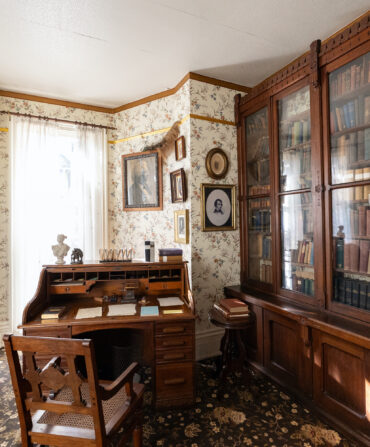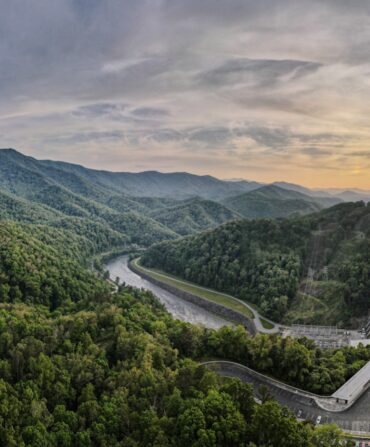A perfect road trip begins at happy hour, at Superior Seafood and Oyster Bar on St. Charles Avenue in New Orleans, for a dozen (or maybe two) oysters on the half shell and a frozen French 75. I know frozen drinks are for teenagers, and I am not one, but that combination of gin, champagne, and lemon juice makes its own special mignonette that forms a lazy river from my mouth to my belly, and since that is what I had the first time I went to Superior almost a decade ago, it is hard to imagine one without the other.
Arrive early and sit at the bar. Oysters are fresh, cold, plentiful, and seventy-five cents apiece at happy hour, shucked by oyster whisperer Kelly Keefe (one of the few female shuckers in town). Superior has three of the top-ranked shuckers in the state, and not only are they fast, they treat everybody like family. You may wind up with Chauncey Gardner-Johnson’s mother on one side of you and George Porter Jr. on the other. And if George Porter Jr. invites you to hear his band at the Maple Leaf Bar, go!
By the time you leave, you’ll have new friends, elevated zinc levels (that’s why oysters increase sex drive), and a tiny afternoon buzz. It’s a good time to wander through Uptown, picking out houses for your alternative NOLA life. Head to Audubon Park to stroll the oval and commune with the black-bellied whistling-ducks, then grab an Uber to Mid-City and Café Degas. Ask for a table near the pecan tree, covered with tiny white lights, that grows through the middle of the dining room. If you can stand more oysters (and I can always stand more oysters), order the flash-fried Louisiana oyster salad with Creole tomato bacon vinaigrette. If enough is enough, both the steak frites and the salade Niçoise are authentic and delicious, or onion soup paired with the jumbo lump crab salad makes a beautiful meal. Café Degas is the place to have your first Sazerac. After dinner, amble through the world’s largest mature live oak forest just down the street in City Park.
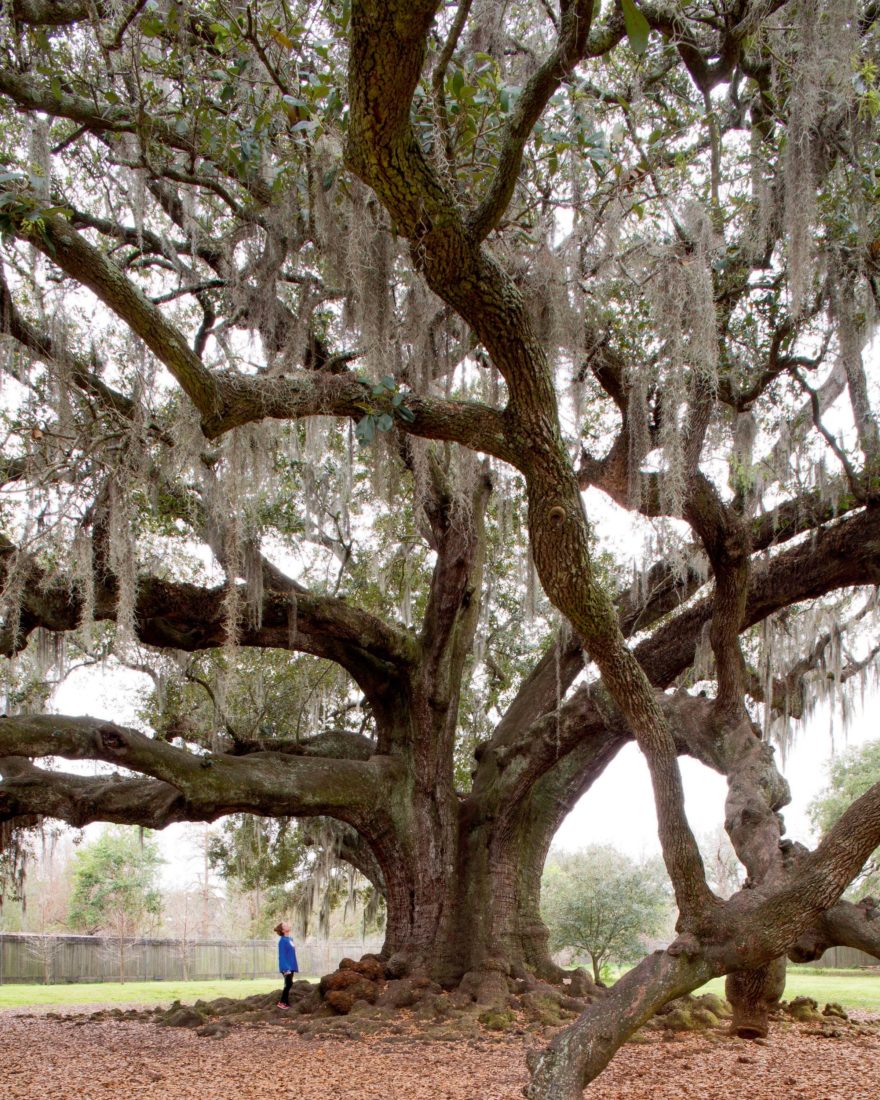
Next morning it’s up and at ’em alongside Lake Pontchartrain and across the border into Mississippi, to the tiny city of Pass Christian. I hope you haven’t had your coffee yet.
There are many opinions about who makes the best latte in the world, ranging from Sant’ Eustachio il Caffè in Rome to Espresso Vivace in Seattle, but Cat Island Coffeehouse would give them both a run for their money. That’s because Sean Pittman is a perfectionist, a former DuPont chemist who always dreamed of having a coffeehouse. But I’m getting ahead of myself.
The first dream in this story belongs to Scott Naugle, an insurance broker who opened Pass Christian Books in a former movie theater in 2002. The store was just starting to catch on when Hurricane Katrina wiped everything out.
“And when I say everything,” Naugle says, “I don’t just mean the books, I don’t just mean the buildings. Two-thirds of the homes in town were gone, and so were the gas lines, the sewers, the sidewalks. At first no one could even think of rebuilding.” It was around that time that Naugle met Pittman—in a Starbucks, of all places. They became business partners, and against what seemed like all good sense engaged an architect to build a bookstore-coffeehouse: modern, glass-walled, light-filled, cantilevered over the ravaged Gulf of Mexico like a sail.
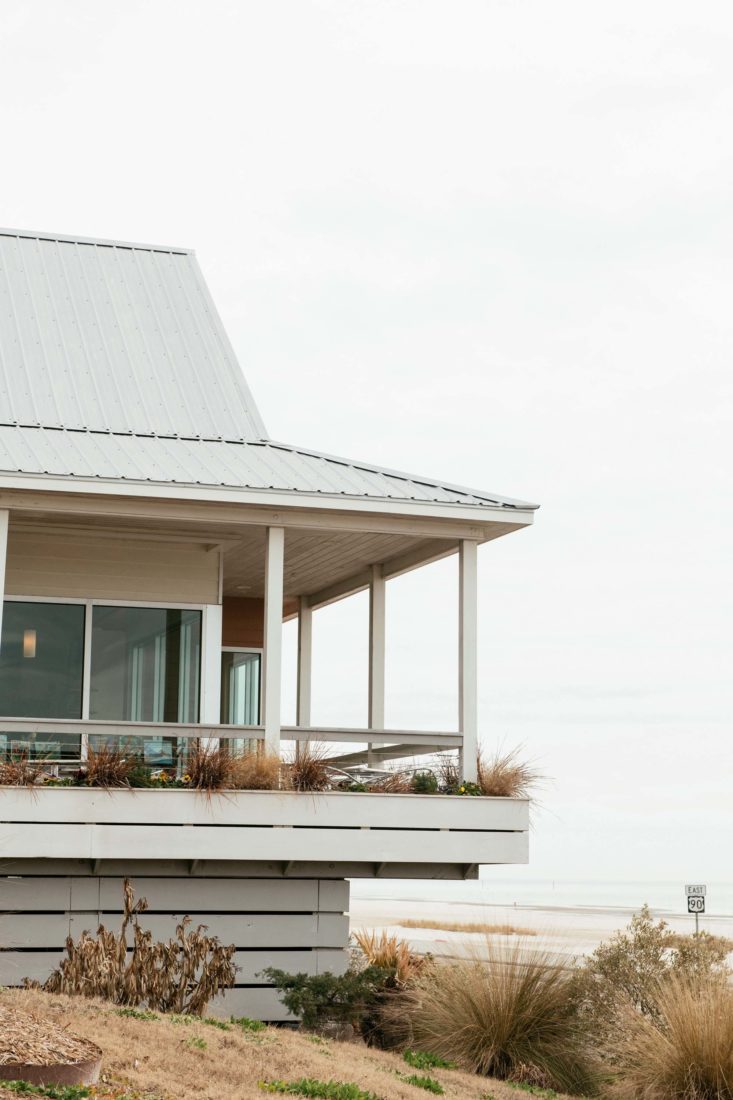
Naugle, with his insurance background, wanted to build for wind resistance. Pittman wanted it to be beautiful. All of their friends thought they had lost their minds.
“There was nothing open in town after Katrina,” Naugle says. “People said, Have you not heard about Kindles? Books are going away! The builders kept asking us where we wanted to put the flat-screen TV. We’d say, not a coffee shop, a coffeehouse. We’d laugh later imagining someone setting down their copy of Virginia Woolf’s The Waves just in time to see the Saints score a touchdown.”
There is no flat-screen TV in Pass Christian Books, but there are several comfy chairs and shelves with books by Jesmyn Ward, Fenton Johnson, James Baldwin, Toni Morrison, Margaret McMullan, and John Dufresne, each title on the list of books I love best or am dying to read.
“Even though we are small,” Naugle says, “my goal is to have something for every person who walks in that door, and I mean absolutely everybody.” Pittman’s goals: best coffee, best food, best experience, period. Unhappy with the quality of the baked goods available locally, he rented another building and built a kitchen so they could make their own. Naugle says, “Sean can pretty much tell you the name of the donkey that carried the free-trade beans down the mountain to the village, which he can also name, as well as the grower, and his kids.”
Pass Books/Cat Island played an enormous role in bringing a city that might have been left for dead back to life, an act of love and devotion so enormous that Naugle (who still works full-time for the insurance industry) refuses to talk about it in those terms. “I look around the store and I see a group of people united by intellect and the desire to know more,” he says, “and that’s good enough for me.”
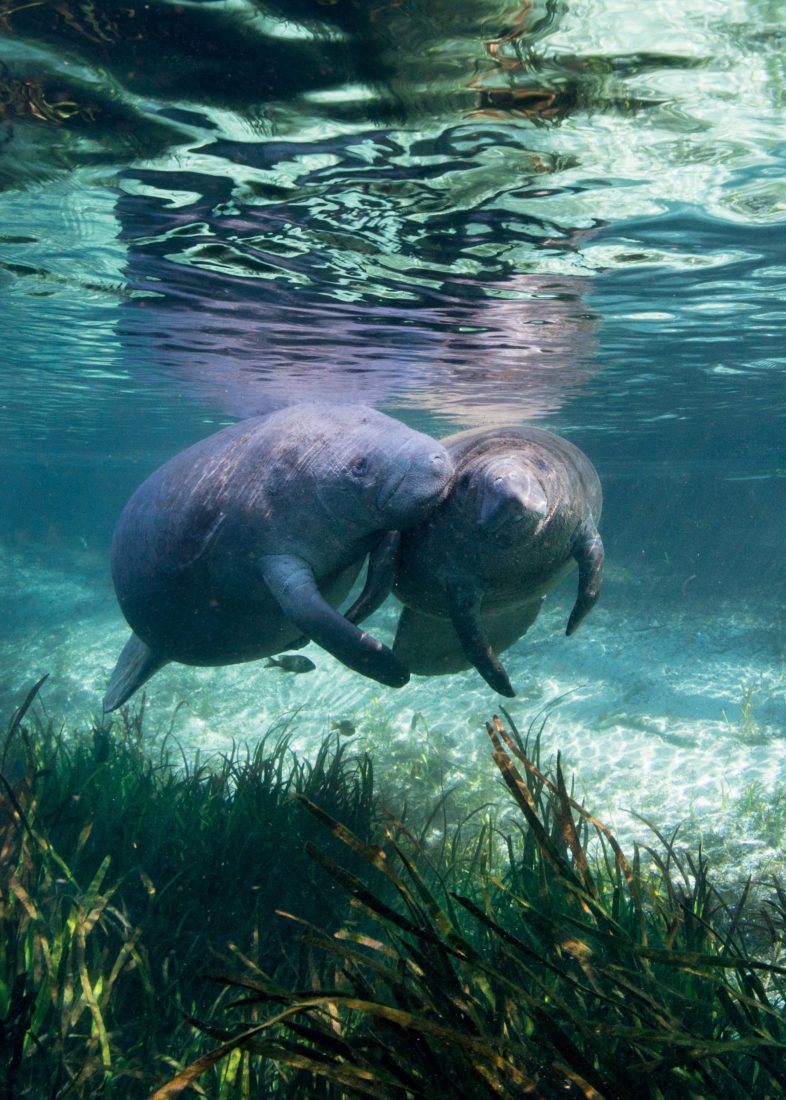
It’s about a six-hour drive from Pass Christian to our final destination, in Florida, and it’s a little longer if you stay on Route 90 along the coast instead of jumping up to Interstate 10, but I’m going to encourage it anyway. If the diamonds bouncing off the surface of the water, the shorebirds in the sloughs, and the opportunity to linger under the giant live oaks that have withstood centuries of hurricanes aren’t reason enough, there is always the promise of grabbing lunch at Taranto’s Crawfish in Biloxi, where the only thing better than the po’boys is the conversations you will have in line.
Start with a simple “How are you?” The answer you get might include the failing memory of your line-mate’s great-aunt, or how they lost a giant date palm in the last big storm. It might include their feelings about the plan to change the Mississippi state flag. Unlike the “none of your freakin’ business” of the Northeast, or the stoic silence of the West, here if you say, “How are you?” people assume you really want to know. I think again about Scott Naugle’s faith in his neighbors and realize one reason I come down here so often is that the way people talk and listen to one another gives me a particular kind of hope.
From Taranto’s there’s a short spur road up to I-10, but I would stay on 90 a little longer, along the Old Spanish Trail and through Pascagoula, where it will traverse the Grand Bay National Wildlife Refuge and ease up to I-10 on its own.
The final stop on your wishful trip across the South isn’t a stop at all. It’s a float, down six gorgeous miles of northern Florida’s Ichetucknee River through Ichetucknee Springs State Park. Eight major crystal-clear springs come together to form this stretch of unexpected heaven, so rent yourself an inner tube on the way in, fill your water bottle, and sink into the comfort of water that is always a perfect seventy-two degrees and every color from deepest turquoise to dazzling aquamarine. This is the original lazy river, but comparing the water-park version to the Ichetucknee is a little like comparing bottled French dressing to what you get on your salade Niçoise at Café Degas.
Beavers slap their tails, turtles sun on logs, otters tumble, and schools of fish shimmer beneath the surface while you float at a speed the human body was made for. Suspended in your inner tube, you’re in the perfect position to glimpse an American kestrel, a northern bobwhite, or a redheaded woodpecker, to say nothing of the great blue herons, wood ducks, and limpkins sharing the river. If you are really lucky, you might find yourself floating over a manatee, that gentle gray teddy bear of the sea. Nobody commits to a good day of floating with the same dedication as a manatee—and perhaps manatees have something to teach us all, here on the other side of too many months of fear and uncertainty.
“Relax,” they might say in a rare but not unheard-of manatee-human mind meld. “Let the water hold you, heal you, carry you downriver to whatever comes next.”

